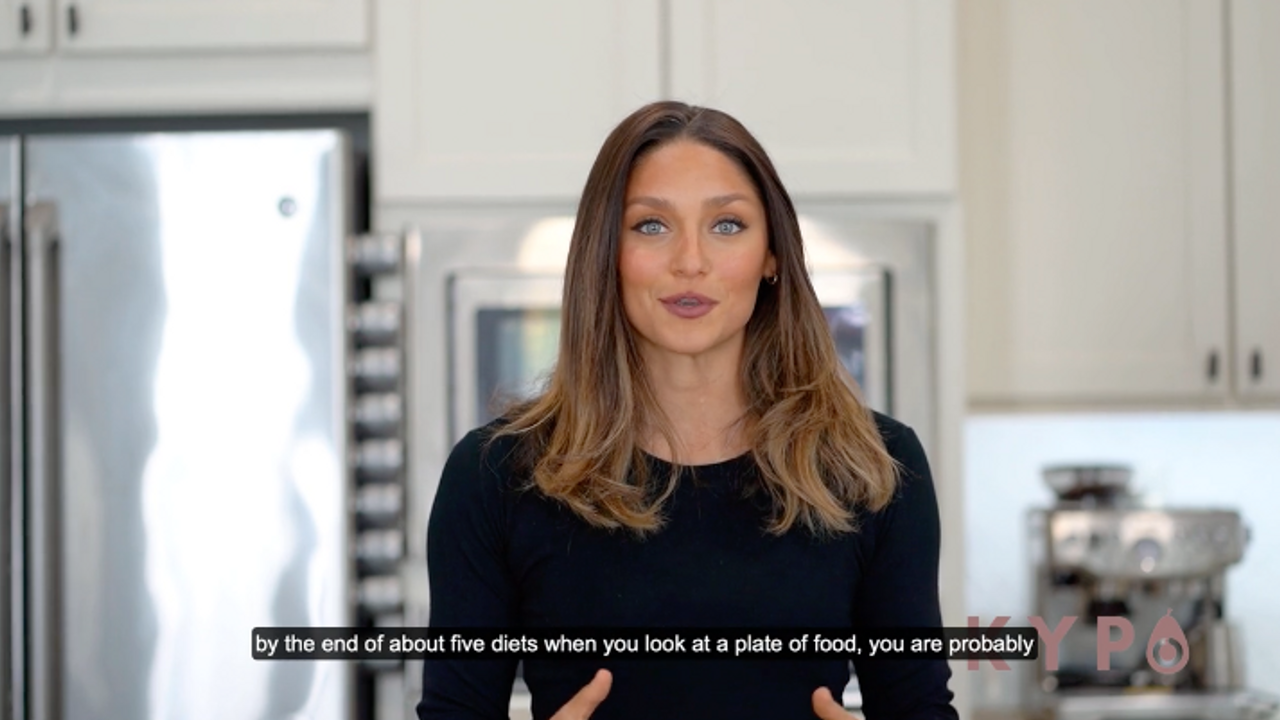What's Controlling Your Metabolism?

There are so many clients that come to me eating WAY TOO LITTLE, and frustrated that they feel like they can't trust their body. That their metabolism is broken, or that they are broken.
Quick hint: you aren't broken! Here is how to understand your metabolism, and see what you can do about it:
A look at your Thyroid:
Your thyroid is in charge of your metabolism (sugar, fat, and protein metabolism). Your thyroid hormones bump up or slow down your basal metabolic rate (BMR), control carbohydrate and fat metabolism, regulate your menstrual cycle, control your internal temperature.
A sluggish thyroid can alter the way your body metabolizes food, and amount of calories you burn through the day. It also holds your delicate hormones in it’s hand and SO MUCH MORE! So if after changing nothing in your diet and lifestyle, you seem to be consistently putting on weight, let’s take a look to see if your thyroid is being supported with your food & lifestyle!
Diagnosed sluggish thyroid (hypothyroid) means decreased metabolic output, while overactive thyroid (hyperthyroid) means increased metabolic function (not ideal either!)
If you are curious about your thyroid, reach out to your doctor and ask to get your thyroid function tested. You would want to get your T3, T4, and TSH levels tested.
happy thyroid foods:
As always, your food is interacting with your function, your body, your internal environment. Here are some foods that are known to support thyroid function:
Iodized salt, seaweed, eggs, nuts, and seafood.
Your MASS & Muscle Mass:
Your body generates energy to support it’s mass. Ever heard that muscle weighs more than fat? It is just way more DENSE than fat, making it more metabolically active! (LOOPHOLE!!!)
Increasing your muscle mass can increase your metabolic rate without you gaining MASS. This is also why strength training can be so beneficial for aging populations. As we age, our metabolic output can decrease by up to 10% per decade after 30! Increasing muscle mass can be a phenomenal way to support our aging metabolic rate.
After losing 100 lbs, your BMR (basal metabolic rate) will decrease significantly. Because there isn't as much of you left to power! You can increase your mass without increasing your size, by increasing MUSCLE MASS.
Gaining and losing fat can change the way your brain regulates your body weight.
This is because significantly fluctuating your body weight is a stressor to the body. In a system that thrives with homeostasis (balance), losing and gaining significant amounts of weight can make our body feel a lack of balance.
more mass = more energy required.
Your DIETS can change your metabolism:
Most diets obsess over calories. Eating less and exercising more. So many people are focusing on low calorie, fat free foods that are incredibly processed and don't taste good!
It's important to remember that your body metabolizes different foods differently. For example:
-
We absorb less energy (calories) from natural, real food sources of carbohydrates, protein, and fats, because our body has to work harder to digest them.
-
We absorb more energy (calories) from highly processed foods, because they are easier to digest.
The more processed a food is, the more the work of digestion has already been done for you! Even differentiating between peanuts & peanut butter, studies show that over 38% of the calories from whole peanuts was excreted in the stool, while 100% of the calories from peanut butter was metabolized from the body.
(you don't have to fear peanut butter, I eat it DAILY!) but it should be empowering to know how helpful it is for your body to eat more unprocessed foods!
Very low calorie diets can cause your metabolic rate to adapt more efficiently (metabolic adaptation).
If you are giving your body very little energy it will metabolize very little energy.
The ALL or NOTHING, binge and restrict diet cycle encourages your body to hold on to food, decrease metabolism, and to store fat because you are not giving your body what it thrives on- consistency and reliability.
Maybe it’s time to find your consistent BALANCE rather than deciding your health needs to be PERFECT or NOTHING.
Reach out to us today, we can help you build your metabolism back from the ground up!

